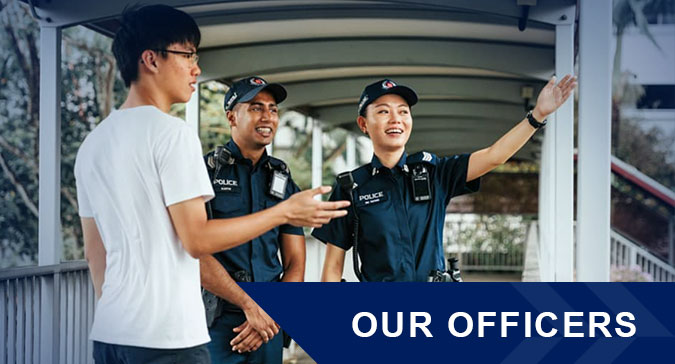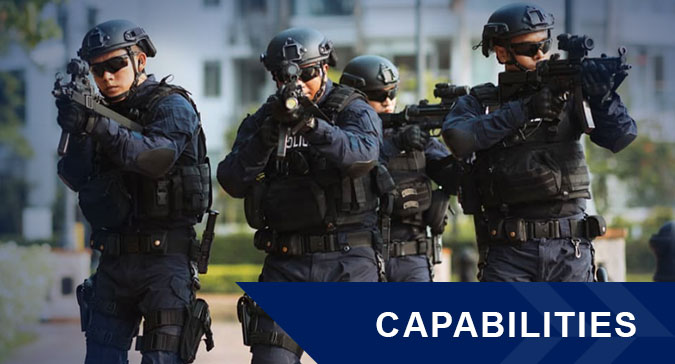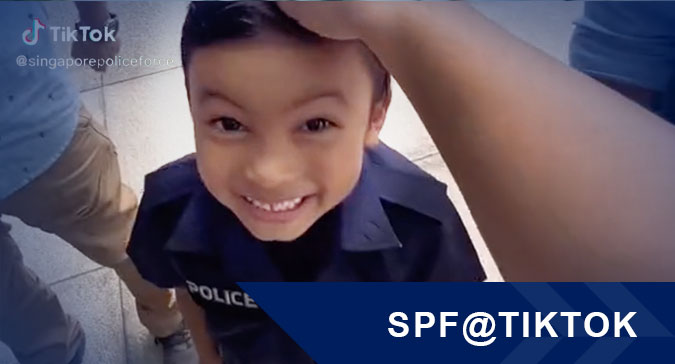Saluting the dedicated officers who respond to critical incidents to help those in need.
By: Leow Su Ling
The Crisis Negotiation Unit (CNU) of the Singapore Police Force (SPF) is tasked with responding to critical events such as hostage incidents, barricade incidents and attempted suicides. During these challenging situations, communication skills and specialised training can save lives and bring about other positive outcomes.
First established in 1994 as the Negotiation Unit, the team was renamed the CNU in 2002 and received an upgrade in its training and capabilities. CNU officers have since assisted in defusing numerous critical incidents over the decades.
To commemorate the CNU’s 20th anniversary and get more insights into its vital work, I spoke with Deputy Superintendent of Police (DSP) Samantha Xu, a CNU Team Leader, and her fellow CNU officer Assistant Superintendent of Police (ASP) Nadiah Ismail.

What does it take to be a CNU officer?
DSP Xu: It means having a heart for saving lives and being able to think on your feet while carrying an effective negotiation strategy during a crisis.
What’s the most memorable case you’ve attended to as a CNU officer?
DSP Xu: When I was a junior negotiator, I had to negotiate with a man who was suffering from schizophrenia and wielding a knife inside his HDB flat. He was communicative with me, but his temperament was erratic.
As I was focused on talking with him, I didn’t realise how close I was to the gate of the flat until my teammate pulled me back to safety. This incident reinforced to me the importance of having a strong team to watch out for one another’s safety.
There was another incident that left a deep impression on me. My team was attempting to engage with a person in distress but weren’t able to prevent him from falling from height. Following this incident, my team members were very supportive of one another. This allowed me to process my emotions and go on to engage those in distress during other incidents.
This is the responsibility that we bear as negotiators. While we may not be able to predict the outcome in every engagement, it isn’t for want of trying.
Have the CNU’s negotiation methods changed over time?
DSP Xu: We’ve become more adaptable over the years. For example, we can now conduct negotiations via text messaging or video calls, which was more difficult for us in the past.
What gives you the greatest satisfaction as a CNU Team Leader?
DSP Xu: Being able to support my team in their crisis negotiation journey and guiding our newer negotiators.
A senior CNU officer told me at the start of my negotiation career that, “If your heart doesn’t beat faster when you get an activation message, you shouldn’t be doing this work.”
Through my years at CNU, I realise that this is true no matter how long we’ve been negotiators. It comes down fundamentally to us caring about people and saving lives.
What advice do you often share with newer CNU officers?
DSP Xu: Crisis negotiations aren’t for the faint-hearted. However, if this is something you truly care about doing, remember that we can’t always control the outcome of an engagement. When we’re activated to handle an incident, we just have to give our best.
Why did you decide to be a crisis negotiator?
ASP Nadiah: I’m inspired by the power of empathy. I tend to look for holistic solutions through the interests and perspective of the person I’m engaging with. I decided to be a crisis negotiator to develop my negotiation skills further and help others through empathy.
What’s the assessment process and training like at the CNU?
ASP Nadiah: The assessment is very challenging as we’re constantly being tested. This is because every action we take can affect the outcome of an incident. I’m grateful that in such a stressful environment, I’m able to persevere and withstand the challenges facing me. Our training keeps us updated on the current state of crisis negotiations and helps us further sharpen our skills.

How does being a negotiator enhance your Policing work?
ASP Nadiah: As a negotiator, I get to see many different aspects of life. I can delve deeper into understanding others, build positive rapport and practise my communication and conflict management skills. These can all be applied to my regular Policing work.
What do you love about being a member of the CNU?
ASP Nadiah: I love the camaraderie we share. The bond forged among team members during moments of crisis is impactful and helped me to realise that “Who cares, wins.”
It’s important to be sincere during a crisis negotiation; this is something that people can feel. What matters to me is the comfort and trust that I can give to someone in distress.










